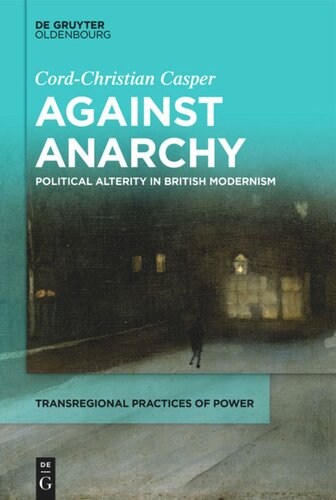

Most ebook files are in PDF format, so you can easily read them using various software such as Foxit Reader or directly on the Google Chrome browser.
Some ebook files are released by publishers in other formats such as .awz, .mobi, .epub, .fb2, etc. You may need to install specific software to read these formats on mobile/PC, such as Calibre.
Please read the tutorial at this link: https://ebookbell.com/faq
We offer FREE conversion to the popular formats you request; however, this may take some time. Therefore, right after payment, please email us, and we will try to provide the service as quickly as possible.
For some exceptional file formats or broken links (if any), please refrain from opening any disputes. Instead, email us first, and we will try to assist within a maximum of 6 hours.
EbookBell Team

5.0
58 reviews'Against Anarchy' investigates the function of Anarchism in Early Modernist political fiction. The study explains how political novels from 1886 to 1911 narrate and evaluate the function of Anarchists as embodiments of a radical space beyond politics.
The literary prevalence of Anarchists has so far not been connected systematically to its literary and political functions. The study addresses this research gap in detailed analyses of a radical theme in narratives by Joseph Conrad, Henry James, and G.K. Chesterton. It shows that each novel presents strategies of demarcation that allow turn-of-the-century Britain to project its cultural anxieties upon an imagined other, the dreaded figure labelled ‘Anarchist’. The political radical is set up as the foil against which comforting self-descriptions can be maintained. Rather than merely reproducing this boundary work, however, the novels also evaluate its function, both for the respective political system and for their own narrative capabilities — and present the consequences incurred by the loss of an anarchist outside.
'Against Anarchy' is a thorough cultural historiography of the politically other and marginal. At the same time, the study demonstrates that close attention to the specific literary image of Anarchism allows for a re-evaluation of political thought beyond its immediate historical moment — a literary political theory in its own right.